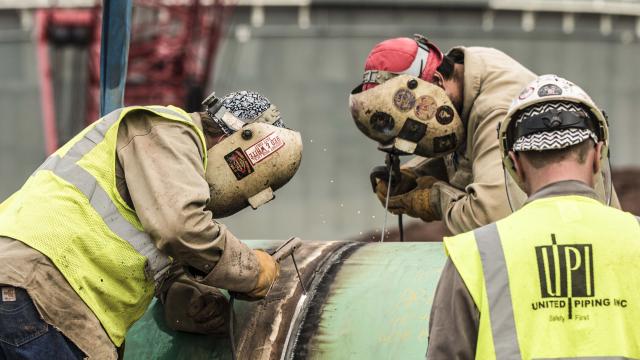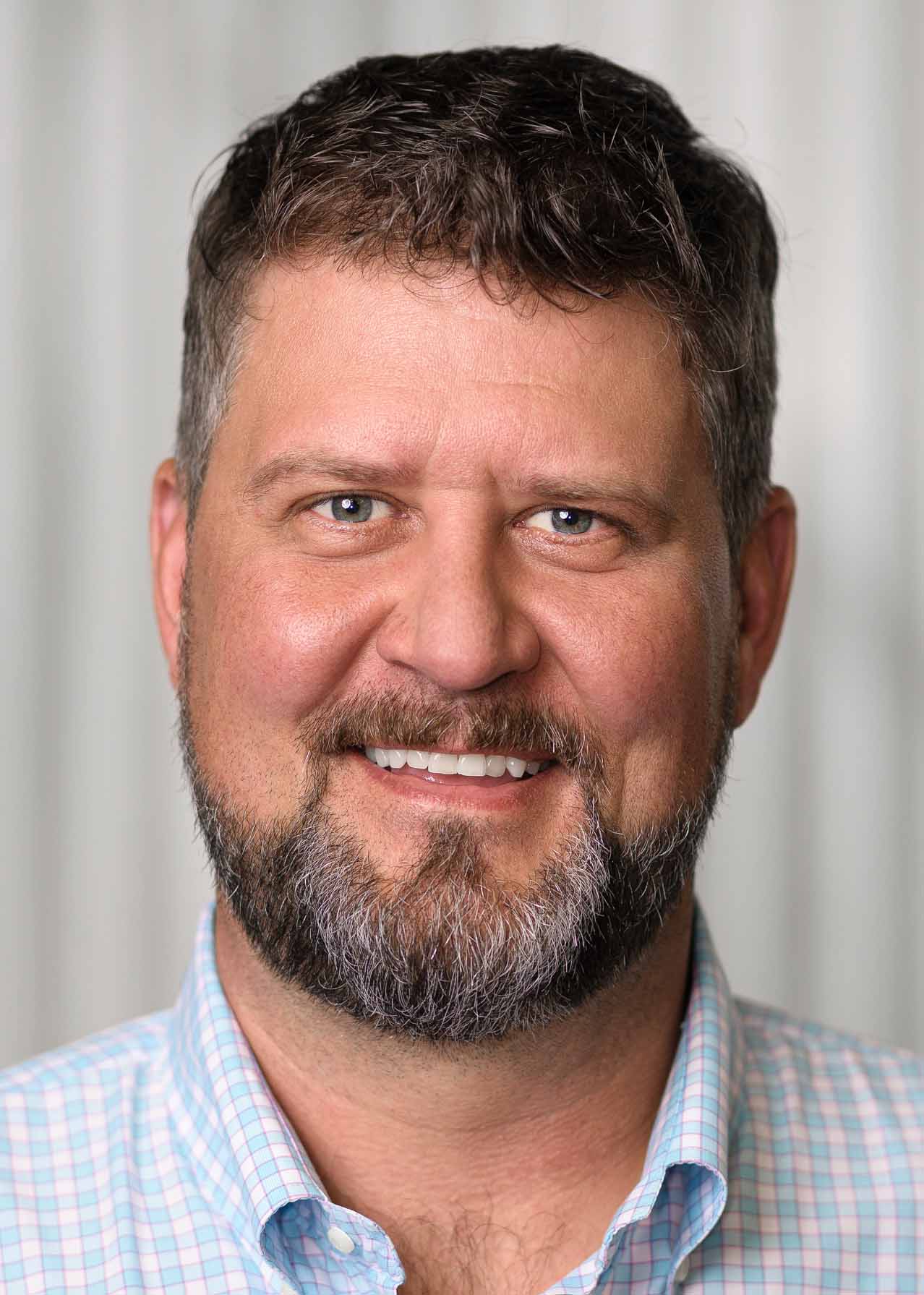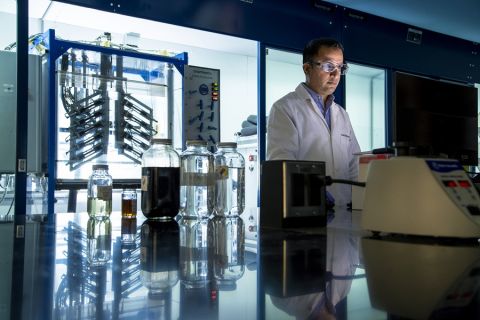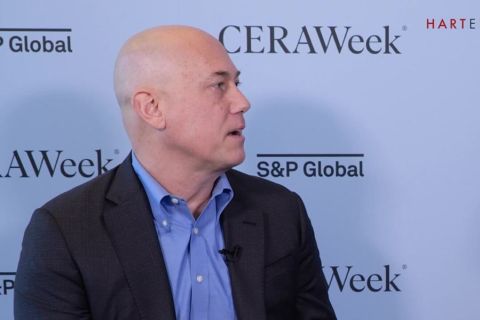
(Source: United Piping Inc.)
Last year might not have been the easiest for those affiliated with United Piping Inc. (UPI), particularly the employees and longtime clients of the Minnesota oil and gas industry general contractor. In November, it had been just over a year since R.J. “Bob” Schoneberger passed away unexpectedly near his hunting lodge in northern Wisconsin. He was just 60.
He was more than a CEO of the company he co-founded more than 20 years ago with a business colleague, Dave Rickard. Schoneberger was also an irreplaceable friend and mentor whose pipeline experience helped turn UPI into an Upper Midwest infrastructure powerhouse. UPI was, and lives on as, a family. It’s what Schoneberger wanted and is a vital piece of his legacy.
This article is written with that family in mind, as executives and managers contributed information and their thoughts about UPI, the industry, and their not-forgotten leader. They will be identified at the end of what is their story.
The UPI Story

UPI evolved as an outgrowth of its predecessor, Ogston’s Inc., which had built up a solid reputation over 35 years in the piping fabrication business. Schoneberger and Dave Rickard joined forces in February 1997 and formed UPI in Duluth, Minn. Schoneberger had just left a lengthy career working with pipeline owner companies while Rickard had been working at Ogston’s. It was an excellent partnership with Rickard’s mechanical and welding expertise complementing Schoneberger’s extensive experience in mechanical engineering and business operations.
UPI began by focusing on shop fabrication, specializing in projects that offered more challenging layouts or other unique aspects. UPI soon acquired a reputation for executing field work of increasing complexity and scope. By 2009, it had attracted the attention of APi Group, which acquired the smaller company. The financial strength of APi enabled UPI to build a more aggressive strategy to grow and approach opportunities that existed in the industry.
Today, UPI is at around 750 employees and operates as a general contractor in large oil and gas facility construction (brownfield and greenfield), pipeline maintenance of any variety including integrity work, line lowerings, reroutes, large-scale hydrotesting, turnkey horizontal directional drilling services, ROW clearing/access/restoration, and continues piping pre-fabrication which now includes a new blasting and painting/coating facility. UPI also has offices in Illinois, Michigan, Wisconsin and Pennsylvania.
When UPI was formed, the mindset was to specialize in construction and maintenance of oil/gas pipelines and facilities. Essentially all of its income derives from this industry with the exception of some ROW clearing/access/restoration in the electrical transmission industry.
Meeting The Challenges
In early 2018, UPI completed a difficult pipeline relocation project in northern Minnesota. Since the original installation of the Line 4 pipeline in the early 1970s, the shoreline of Nushka Lake in Cass County on the Leech Lake Reservation has changed, pushing Line 4 from its original position, requiring the operating company to relocate that segment of pipe as part of its ongoing maintenance program.
UPI’s general contracting services were substantial, involving site clearing and preparation, construction of an ice road, preparing the new piping as well as excavation and removal of the old piping. Project work also included tie-ins, hydrotesting, field coating, internal cleaning, caliper and gauging of the new pipe, and site restoration.
Leech Lake Band of Ojibwe was adamant that construction activities in the wetland did not run into another year. An extremely challenging aspect of keeping a tight schedule was the 2.25-mile frost road through an expansive wetland that ultimately attained 24 to 40 inches of frost and ice. The project needed temporary workspace nearing 40 acres, with approximately 25% requiring tree clearing prior to pipeline work commencing.
Crews worked around the clock to install sheet piling and welding/stringing the replacement section. A 90-hour outage was scheduled in March at which time a 9.3-mile nitrogen purge was executed for the tie-in of the replacement segment.
The removal of 3,200 feet of existing pipeline and the challenging tie-in to an existing line made the project noteworthy and unique. Success did not come easily. Crews had to work in swampy, less-than-ideal conditions, relying a great deal on Mother Nature for the success of the job, specifically when it came to ice road construction and an extremely tight deadline. To meet the mid-March 2018 deadline, crews worked 24/7 beginning at the site in November 2017. The approximately 150 employees on the project surpassed 105,000 manhours.
Operators And Contractors: An Evolving Relationship
As other energy companies are experiencing, uncertainty in permitting is having an impact in the overall size of the market. The pipeline market is starting to decline from the volumes that UPI saw over the last several years. They believe this is resulting in operating companies recognizing that contractor resources aren’t as constrained as in the past, and their supply-chain departments have more ability to commoditize the market.
Several pipeline construction companies with long histories have gone bankrupt recently. The financial performance pressure is definitely increasing, UPI told HartEnergy.com. At the same time, the company said the requirements being placed on operating companies and their projects is also increasing. This directly affects the contractors, as well. There is more risk to share and the work is becoming increasingly more complex.
When they are hired, UPI says they work very closely with the operating companies to ensure that the project meets or exceeds the standards for quality and safety. It is also more important than ever to minimize impact to the environment and the public, they say. UPI’s championing of infrastructure projects, like Enbridge’s Line 3 Replacement Project, was led by Schoneberger and continues today through CEO Mel Olson and others. That personal and professional dedication is more than just about maintaining a business relationship—it’s about doing the right thing. They all remain focused on spreading the right message regarding the safe transportation of energy.
The Line 3 Replacement Project
Enbridge’s proposed multibillion-dollar Line 3 Replacement Project is the largest job in the Canadian pipeline operator’s history and will replace 1,031 miles with new pipe and associated facilities on both sides of the international border. The U.S. construction segment consists of replacing 34-inch diameter pipe with 36-inch pipe for 13 miles in North Dakota, 337 miles in Minnesota, and 14 miles in Wisconsin. The Wisconsin portion was completed in 2018 and is in service. The Canadian portion of the line is complete and was placed into service in late 2019.
When entirely replaced, the new pipeline will restore Line 3’s original capacity of 760,000 barrels per day. The line runs from Hardisty, Alberta, to the Enbridge terminal in Superior, Wis. The project has encountered steady opposition from anti-fossil fuel groups and some indigenous communities.
Enbridge is working toward obtaining all remaining permits and approvals required for construction in 2020. Construction in Minnesota and North Dakota is expected to begin concurrently upon receiving all permits and approvals.
Despite the positive news, Enbridge CEO Al Monaco declined to estimate a startup date. The project was expected to be completed in the second half of 2020. Analysts at Stifel FirstEnergy say they anticipate a Jan. 1, 2022 startup date.
UPI And Enbridge
UPI has been a favored contractor in Minnesota dating back to its founding. So, it is not possible to speak about UPI’s history without reflecting on the ties to Enbridge. “We’ve grown with them, and we’ve worked on or built many of the assets that are foundational to their company,” UPI told HartEnergy.com.
“So many awesome projects. We have built facilities on both sides of the Mackinac Straits in Michigan and tested the pipeline under the Straits. We’ve performed numerous integrity digs across the country to ensure safe and reliable operations of the pipelines. We even tested a line all the way across Minnesota and did so without interrupting service.
“We’ve spent years consecutively working in the Superior Terminal and others. There are literally millions of manhours spent on safe, quality work building and maintaining Enbridge systems. We’re proud of the work and our professional relationship with Enbridge.
“We support the replacement of Line 3. It is a crucial part of the state and country’s energy infrastructure, and it’s time to replace it to ensure we have reliable and safe transportation going forward. UPI would be proud to work alongside Enbridge in the construction of the Line 3 Replacement.”
Women And Welding
“Fired Up About Welding” is a course specifically for high school girls who are interested in learning about and getting some hands-on experience in welding. Lake Superior College graduate and lab assistant Nicole Okstad and other local female welders provide hands-on training at LSC’s downtown Duluth campus every Wednesday for two months in early 2019.
UPI then sponsored the graduation dinner, at which 11 girls presented their final projects, and afterwards took a tour along with their parents of UPI’s fabrication shop. One significant aspect of the initiative enables the girls to learn from female welders. Program leaders agree that increased exposure to welding is beneficial, but even more so is the opportunity for the girls to see women who have completed their studies, found work and succeeded in their chosen field.
One reason such programs are necessary is the continued difficulty for construction contractors to recruit skilled workers. “Absolutely,” agreed the UPI interviewees. Encouraging young men and women to enter the skilled trades and unions needs to be a bigger focus for society, they told HartEnergy.com. And getting those individuals that are also willing to make the personal sacrifice to travel constantly to maintain energy infrastructure makes this even more difficult.
Remembering Bob Schoneberger
The Minnesota native graduated with a Bachelor of Science degree in mechanical engineering from the University of North Dakota. He worked as a field operations engineer with Natural Gas Pipeline Co. of America (NGPL) and with Panhandle Eastern Pipeline Co. as a division pipeline engineer before he was named technical operations supervisor and area manager. In 1989, he began working for Enbridge Energy (formerly known as Lakehead Pipeline Co.) ending as manager of right-of-way and environment.

Schoneberger stepped down as UPI president in 2017, taking more of an advisory role and serving as an industry advocate while retaining the CEO title.
Today, Mel Olson serves as president and CEO of UPI. He is a graduate of North Dakota State University with a civil engineering degree. He joined UPI in 2017. On summing up the life, career and legacy of Bob Schoneberger, he shared:
“I feel like whatever words I choose to describe Bob will not be enough. He was just a great, great man. He was a relationship builder extraordinaire with the industry knowledge and experience to back it up. Everywhere Bob went, whether business related or just meeting folks along the way, he left strong, lasting relationships behind.
“Throughout his years at UPI he led the company through tremendous growth, acquisitions and new markets, but Bob stressed the absolute best part of the UPI story was the people he had the opportunity to meet and work with on the journey. The legacy he leaves with UPI is one that is still as strong today as when we lost him and I don’t see that ever changing. His legacy is all about the UPI values that are evergreen in our organization. Integrity, Respect, and Caring.”
(Author’s note: in addition to Mel Olson, others from UPI who contributed to this article were John Purrenhage, senior vice president; Brandon Lunde, vice president of engineering; Joel Bailer, vice president of construction; Brent Straub, director of business development and Lucie Stein-Cartford, training and development manager.)
Recommended Reading
Defeating the ‘Four Horsemen’ of Flow Assurance
2024-04-18 - Service companies combine processes and techniques to mitigate the impact of paraffin, asphaltenes, hydrates and scale on production—and keep the cash flowing.
Tech Trends: AI Increasing Data Center Demand for Energy
2024-04-16 - In this month’s Tech Trends, new technologies equipped with artificial intelligence take the forefront, as they assist with safety and seismic fault detection. Also, independent contractor Stena Drilling begins upgrades for their Evolution drillship.
AVEVA: Immersive Tech, Augmented Reality and What’s New in the Cloud
2024-04-15 - Rob McGreevy, AVEVA’s chief product officer, talks about technology advancements that give employees on the job training without any of the risks.
Lift-off: How AI is Boosting Field and Employee Productivity
2024-04-12 - From data extraction to well optimization, the oil and gas industry embraces AI.
AI Poised to Break Out of its Oilfield Niche
2024-04-11 - At the AI in Oil & Gas Conference in Houston, experts talked up the benefits artificial intelligence can provide to the downstream, midstream and upstream sectors, while assuring the audience humans will still run the show.





